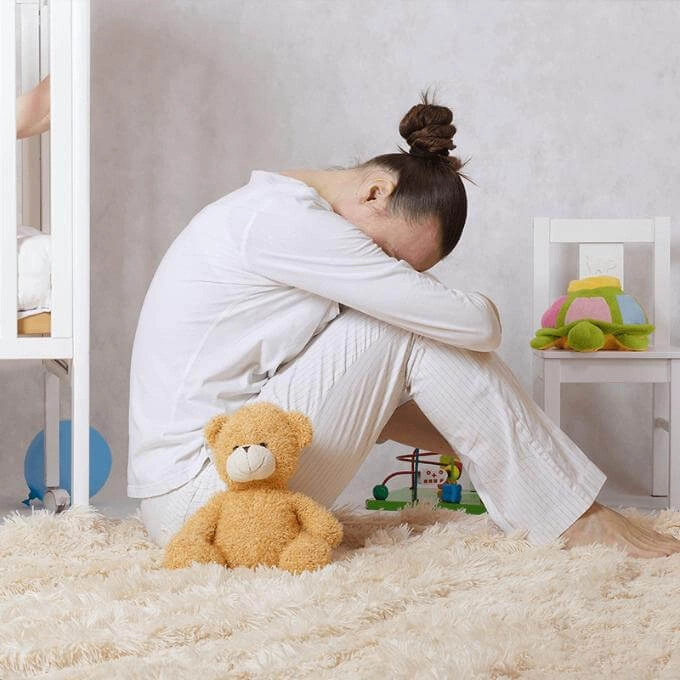Home/Wellness Zone/Sakra Blogs
9th Jun, 2021

The birth of a child is one of the most beautiful moments in the life of a couple. However, there are often unnoticed cases of depression that occur in parents (mostly mothers) post-birth. This condition is often confused with baby blues and known as Postpartum Depression. Baby blues occur in mothers post-delivery due to the hormonal imbalance in their bodies. Postpartum depression on the other hand is a more long term and serious condition.
Sakra World Hospital is the best psychiatric hospital in Bangalore. At Skara World, the Department of Psychiatry has a team of the best doctors who are trained and expertise from famous national and international universities.
Symptoms of Postpartum Depression
Postpartum Depression ranges from mild to symptoms.
The symptoms last from a few days to a week or two after the baby is born and are basically baby blues symptoms.
Mood swings
Anxiety
Sadness
Irritability
Feeling overwhelmed
Crying
Trouble sleeping
Reduced concentration
Postpartum Depression Symptoms
These symptoms are more intense and last longer and develop within the first few weeks after the child is born.
severe mood swings
Excessive crying
Difficulty bonding with your baby
Withdrawing from family
Loss of appetite or eating too much
Inability to sleep
Overwhelming fatigue or loss of energy
Having no interest in activities you used to enjoy before
Intense irritability and anger
Fear that you're not a good mother
Hopelessness
Feelings of worthlessness, shame, guilt or inadequacy
Problem in concentrating or making decisions
Restlessness
Severe anxiety and panic attacks
If PPD is left untreated then it may last for months or years which can endanger the lives of both the mother and the kid.
Postpartum depression differs in every parent so you may not have all the symptoms, but if you feel you have some symptoms then immediately consult with the doctor. In women, the main causes of postpartum depression are hormonal changes that occur during and post-pregnancy. During pregnancy, the levels of two hormones i.e., oestrogen and progesterone increase in women and the sudden drop of these hormones after childbirth results in postpartum depression.
In a study, it was found that not only mothers, but fathers can also develop PPD due to emotional turmoil. Eventually, the fathers may turn violent towards their children if it is left untreated. Couples who are unprepared for a child can experience more stress and are more vulnerable to the chances of developing the condition. PPD can have a negative effect on children and babies as mothers may become hostile towards them. This might affect the proper development of the children and they may become anxious, fearful and unresponsive towards people. Studies show that babies who are breastfed by postpartum depression suffered mothers gain weight at a slower rate than babies whose mothers don’t suffer from PPD.
Treatment of Postpartum Depression
Antidepressants are given by the doctor which directly affects the brain. It takes several weeks before you notice any changes in your mood. Consult a psychologist or psychiatrist in Bangalore, they will tell you better ways to cope with your feelings. Spending time with your family and friends is also effective to tackle feelings of isolation. Eating healthy food, sleeping early and for complete 8 hours will help you in treating postpartum depression.
We offer comprehensive evaluation, diagnosis and postpartum depression treatment in Bangalore. If you or your loved one is suffering from postpartum depression for a long time then consult our postnatal depression counselling services to know more about postpartum depression symptoms and treatment.
Received Coverage in The New Indian Express - https://www.newindianexpress.com/cities/bengaluru/2018/apr/11/fathers-too-suffer-from-postpartum-depression-1800174.html
Enquire Now
